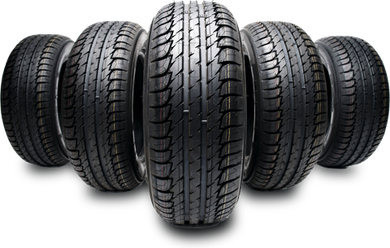Tire Solution: Understanding Tire Stress Surveillance Equipments
Recognizing Tire Stress Surveillance Equipments (TPMS) is a vital aspect of maintaining ideal automobile performance and safety and security on the roadway. With improvements in automotive innovation, TPMS has actually ended up being a typical function in modern-day vehicles, providing real-time information on tire stress levels. Diving deeper into the complexities of TPMS, one can discover the numerous components that comprise this system and the value of each in making sure precise monitoring. From straight to indirect TPMS systems, the landscape of tire stress monitoring is diverse, each with its distinct set of considerations and advantages. Keep tuned to untangle the intricacies of TPMS, from upkeep tips to the undeniable advantages of maintaining your tires correctly blew up. discount tires morris il.

Relevance of TPMS
The relevance of Tire Pressure Monitoring Equipments (TPMS) depends on their capability to improve automobile security and performance through real-time tracking of tire stress degrees. Keeping the proper tire stress is essential for ensuring ideal handling, stopping, and total security of a vehicle. TPMS supplies vehicle drivers with immediate feedback on any underinflated or overinflated tires, permitting timely adjustments to be made.
Parts of TPMS
Sensors are typically situated in the tire shutoff stem or attached to the wheel setting up, where they measure tire stress and send information to the control module. Some progressed TPMS versions additionally display the actual tire stress analyses for each tire, offering vehicle drivers with real-time details to make certain optimum tire efficiency and safety and security. By checking tire pressure constantly, TPMS helps protect against mishaps, reduces tire wear, and boosts gas performance, making it a crucial component for lorry safety and efficiency. tires morris il.
Kinds Of TPMS

On the other hand, indirect TPMS relies upon the vehicle's wheel speed sensors to check tire pressure. This system detects underinflation by comparing the rotational rates of the wheels. Indirect TPMS is much less costly than straight TPMS, as it makes use of existing sensing units within the vehicle.
While straight TPMS supplies more precise readings, indirect discount tires morris il TPMS is simpler in layout and generally calls for less upkeep. Both systems have their advantages and limitations, and the selection in between them frequently depends upon aspects such as expense, car make, and individual choice. Recognizing the distinctions between these two sorts of TPMS can help lorry proprietors make educated choices pertaining to tire maintenance and safety.
TPMS Upkeep Tips
Conduct regular checks on the tire pressure degrees and contrast them with the TPMS analyses to guarantee they are regular. During tire turning or replacement, make sure that the TPMS parts are managed thoroughly to prevent any type of potential damage. If the TPMS advising light illuminates on the dashboard, attend to the problem immediately by inspecting the tire pressures and the total system for any type of faults.
Advantages of Appropriate Tire Pressure
Maintaining correct tire stress, as stressed in TPMS Upkeep Tips, is important for reaping the countless advantages linked with ideal tire pressure degrees. Furthermore, proper tire stress guarantees also tire wear, prolonging the life-span of the tires and promoting much safer driving conditions. In conclusion, the advantages of proper tire stress go beyond simply tire durability; they incorporate boosted gas effectiveness, improved security, far better car efficiency, and overall driving convenience.
Final Thought
Finally, recognizing tire stress monitoring systems (TPMS) is vital for preserving optimum tire pressure and guaranteeing vehicle security. By acknowledging the value of TPMS, being familiar with its components, understanding the different kinds readily available, sticking to correct upkeep tips, and understanding the advantages of maintaining correct tire pressure, vehicle drivers can boost their driving experience and extend the lifespan of their tires. Proper tire pressure is key to effective and risk-free lorry procedure.
